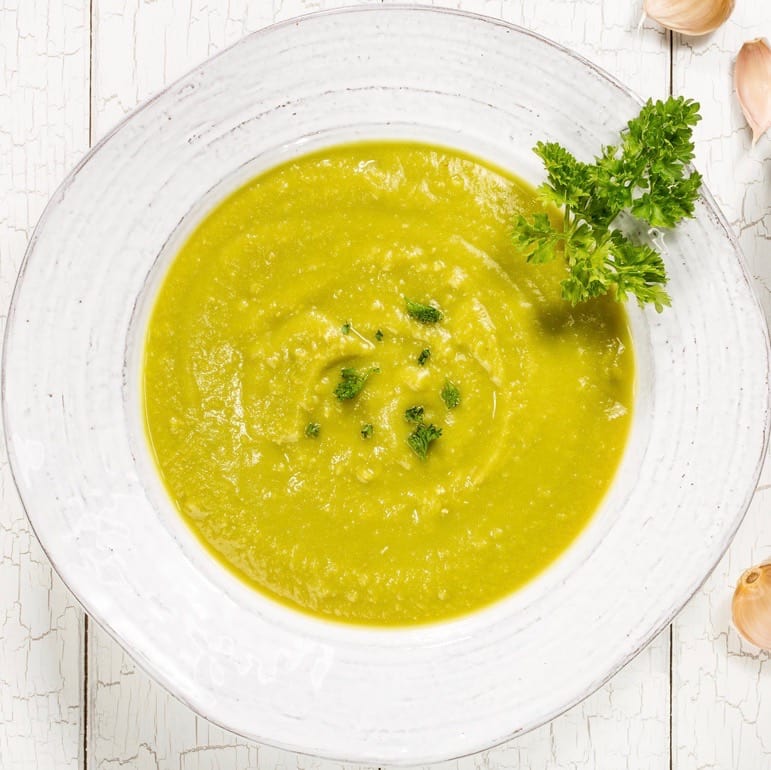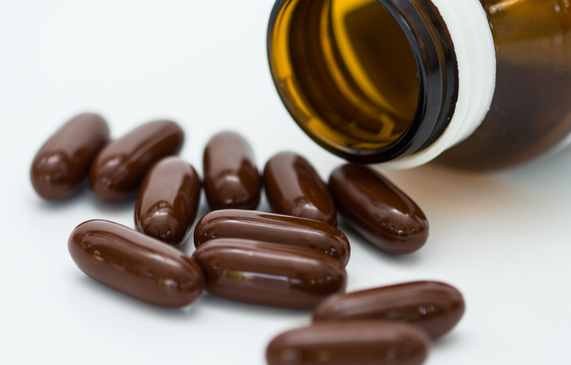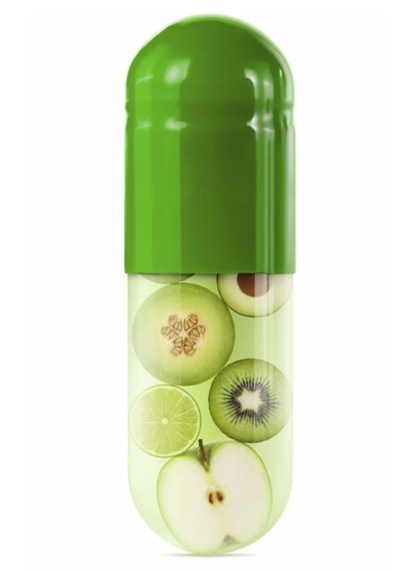Not just another vitamin, Vitamin B12 is the stuff of Nobel Prizes. Six, in fact. While you might already know that Vitamin B12 is a nutrient of concern for people on a vegan diet, few realize that the risk of B12 deficiency increases for people over age 60 regardless of diet, as well for those who take certain medications.
What are the Symptoms of a Vitamin B12 Deficiency?
Low B12 levels can cause some debilitating and dangerous side effects, including severe anemia, and neurologic conditions like altered sensation in hands and feet, anxiety, irritability, dementia, and — in rare cases — hallucinations. You get the picture… Vitamin B12 is a big deal.
What Does Vitamin B12 Do?
Vitamin B12 is an essential nutrient that enables critical cellular functions, including the production of DNA—the chemical blueprint upon which our biology depends. Vitamin B12 is also needed for the body to form myelin, the chemical coating that envelops and protects our nerves and is integral in the production of red blood cells. No wonder why a lack of sufficient B12 can lead to such widespread, and calamitous, health problems.
Does B12 Occur Naturally in Food?
The original source of Vitamin B12 is from helpful bacteria. Vitamin B12 is found naturally only in animal products. Plants do not have appreciable amounts for a very simple reason: unlike animals, plants do not need or use Vitamin B12.
Animals do require Vitamin B12, although they do not produce it—at least not without some friendly help. In a clever partnership, animals depend on the microbes living in their gut to do the heavy lifting. Ruminant animals such as cattle, which metabolize otherwise indigestible foods by way of bacterial fermentation, have especially capable bacteria that manufacture plentiful quantities of B12. Other animals also acquire varying amounts of B12, sourced from either their own bacterial colonies or, as in the case for fish, aided by consuming plankton loaded with bacteria that produce Vitamin B12.
Can Humans Make B12 ?
Yes and no. Like animals, humans do make Vitamin B12, but unfortunately the set-up is dysfunctional. In people, the specialized bacteria that produce B12 flourish in the lower digestive tract—also known as the colon or large intestine. The paradox is that humans can only absorb B12 in the upper (small) intestine. This flawed arrangement is like a computer factory where the microchips first enter the production line in the shipping department… not the most useful arrangement!
Here’s a fun fact: One of the reasons why primates and some other animals eat their feces is to aid in absorption of the B12 they produce in their lower GI tract. Kind of a second chance. Not the solution for you? Keep reading!
Who is Most at Risk for Low B12 Levels?
- Vegans (and people who eat very few animal products): Those who avoid animal products completely, or who eat them only occasionally (such as vegetarians who rarely eat eggs and dairy, or people who avoid meat but occasionally have fish) need to obtain Vitamin B12 some other way, such as through fortified foods or supplements. When this need goes unaddressed, it can result not only in the harmful effects of B12 deficiency, but can also hinder the many health benefits that otherwise come from a healthy diet of varied, plant-sourced foods.
- People 60 and Older: The stomach lining produces a carrier protein that escorts Vitamin B12 to the small intestine where it is absorbed. With age, our bodies tend to produce less of the carrier protein, and in some cases, even produce antibodies against it, resulting in low levels of Vitamin B12. In a study of people over 65, 15% had low Vitamin B12 levels. Those with a mild deficiency might have no symptoms or problems; others can experience tingling in the hands or feet or gait disturbances. A more serious form of Vitamin B12 deficiency affecting 2% of seniors is pernicious anemia—a condition that can cause a very low red blood cell count, fatigue and weakness. Fortunately, it responds well to treatment with high dose Vitamin B12 supplementation.
- People Who Take Medication for Acid Reflux: Stomach acid is needed for Vitamin B12 absorption because acid releases the Vitamin B12 in food. When acid production is suppressed, Vitamin B12 remains bound within the food and, therefore, is not well absorbed. Low Vitamin B12 levels are especially likely when potent acid-suppressing medicine, proton pump inhibitors (PPIs), are used for an extended period—over 1 year.
- People Who Take Metformin (a common diabetes medication): Metformin can restrict Vitamin B12 absorption; this too is more likely with long-term use.
How Much Vitamin B12 Do Humans Need?
The recommended dietary intake of Vitamin B12 for people 14 years or older is 2.4 micrograms per day (people who are pregnant or breastfeeding require a bit more). The conundrum is that reaching this amount without fortification typically requires daily servings of animal products that, for most people, are best minimized or avoided.
Solutions include incorporating the healthiest types of fortified foods, as well as (depending on the circumstances) the possibility of adding a B12 supplement.
Multivitamins usually contain at least the minimum of 2.4 micrograms of Vitamin B12, and multivitamins formulated for seniors typically have significantly higher amounts of B12 in recognition of the greater likelihood of a deficiency at older ages. The amount of Vitamin B12 in multivitamins may be sufficient for borderline low intake, but the much higher doses found in single formulation Vitamin B12 supplements are needed for more severe deficiencies.
Which Foods Have the Most Vitamin B12?
For people who eat animal products, the order of B12 content per serving, from highest to lowest, is: mussels, clams, fish (varies by species—tuna, trout and salmon are highest), beef, milk, yogurt, cheese, eggs, and chicken.
In a public health effort to ensure adequate intake, Vitamin B12 is often added to a variety of plant-sourced foods:
- Nondairy milks (such as soy, almond, and oat milk) are often fortified with Vitamin B12, but presence and amounts vary — check the label.
- Breakfast cereals are frequently fortified with supplemental Vitamin B12. Nevertheless, most breakfast cereals aren’t the healthiest choices, so if you consume them, look for those with no or low added sugar and higher fiber content.
- Nutritional yeast is a savory ingredient often used in vegan and vegetarian dishes. It is often richly fortified with B12. Unlike its bread-making counterpart, this type of yeast has been deactivated by heat. It’s typically sold as flakes and has a slightly nutty or cheesy flavor that pairs well with popcorn, soup, and vegetables. Not all brands are fortified with B12, and amounts vary, so look for mention of added B vitamins and check the nutrition label.
What Should You Do If You Suspect (or Know) You are at Risk for Vitamin B12 Deficiency?
Talk to your healthcare provider about it! Depending on the circumstances, supplemental B12 might be recommended or perhaps a blood test for Vitamin B12 (and other related blood tests that evaluate the consequences of a possible deficiency) might be ordered to decide the best course of action.
Too many people suffer from undiagnosed Vitamin B12 deficiency and experience needless problems that range from tingling hands and feet, to anemia, and can include cognitive changes. The very good news is that although a severe deficiency of Vitamin B12 can have devastating consequences, it is an easy condition to prevent and treat.
References:
Vitamin B12 Fact Sheet for Health Professionals, from NIH
Benefit of vitamin B-12 Supplementation in Asymptomatic Elderly
Vitamin B12 among Vegetarians: Status, Assessment and Supplementation
Proton Pump Inhibitors and Vitamin B12
Interested in eating better for your own health?
Learn the essentials of good nutrition in our interactive, user-friendly nutrition learning program for the public.
Clinicians: Do you feel confident responding to patient questions about nutrition?
Take our award-winning condensed interactive nutrition CME—and learn what every clinician should know about nutrition.



